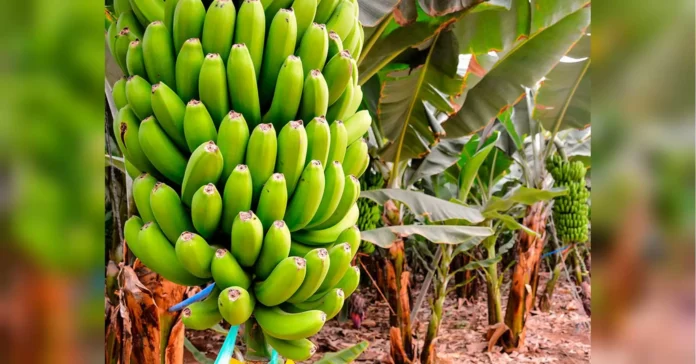Whole Plantations of Popular Species are Disappearing Due to Disease
In recent years, there has been a concerning trend in the agricultural industry – entire plantations of popular species are disappearing due to disease. This has not only caused significant economic losses for farmers, but also raised concerns about the future availability of these crops for consumers. The impact of these diseases goes beyond just the financial aspect, as it also affects the livelihoods of farmers and the global food supply. In this article, we will explore the causes and consequences of this issue and what can be done to address it.
One of the main reasons for the disappearance of plantations is the spread of diseases. With the rise of global trade and travel, diseases can easily spread from one region to another, affecting crops that were previously disease-free. This is especially true for popular species that are grown in large quantities, making them more vulnerable to diseases. In addition, the use of monoculture – the practice of growing only one type of crop in a specific area – also contributes to the spread of diseases. Monoculture creates a perfect environment for diseases to thrive, as there is a lack of genetic diversity among the crops, making them more susceptible to infections.
One example of a popular species that is currently facing a serious threat from disease is the Cavendish banana. This variety accounts for 95% of global banana exports and is loved by consumers for its taste and convenience. However, in recent years, the Cavendish banana has been under attack from a deadly fungus called Fusarium wilt, also known as Panama disease. This disease attacks the roots of the banana plant, causing it to wilt and eventually die. The fungus can survive in the soil for decades, making it difficult to eradicate. As a result, entire plantations of Cavendish bananas have been wiped out in countries such as the Philippines, Indonesia, and Australia.
The consequences of these disappearing plantations are far-reaching. For farmers, it means a loss of income and livelihood. Many small-scale farmers rely on these crops for their livelihoods, and when their plantations are affected by disease, they are left with no source of income. This can have a ripple effect on the local economy, as these farmers are unable to contribute to the market and support other businesses. In addition, the disappearance of these crops also affects the global food supply. With the increasing demand for food due to population growth, the loss of entire plantations can lead to food shortages and price increases.
So, what can be done to address this issue? One solution is to promote crop diversity. Instead of relying on monoculture, farmers can diversify their crops, planting different varieties in the same area. This can help prevent the spread of diseases, as different crops have different resistance levels to different diseases. In addition, promoting crop diversity can also help improve soil health and reduce the need for chemical fertilizers and pesticides. Governments and organizations can also provide support and resources to farmers to help them diversify their crops.
Another solution is to invest in research and development to find disease-resistant varieties. With the advancement of technology, scientists are now able to identify and develop crops that are resistant to certain diseases. This can help prevent the spread of diseases and ensure the availability of popular species for consumers. However, this requires significant funding and support from governments and organizations.
Consumers also have a role to play in addressing this issue. By supporting sustainable and diverse farming practices, consumers can help create a demand for diverse crops and encourage farmers to diversify their plantations. In addition, consumers can also educate themselves about the impact of monoculture and the importance of crop diversity.
In conclusion, the disappearance of entire plantations of popular species due to disease is a concerning issue that requires immediate attention. It not only affects the livelihoods of farmers but also has a significant impact on the global food supply. By promoting crop diversity, investing in research and development, and supporting sustainable farming practices, we can work towards preventing the spread of diseases and ensuring the availability of these crops for future generations. As consumers, we also have a responsibility to support these efforts and make informed choices about the food we consume. Let us all work together to protect our crops and secure a sustainable future for our food supply.

